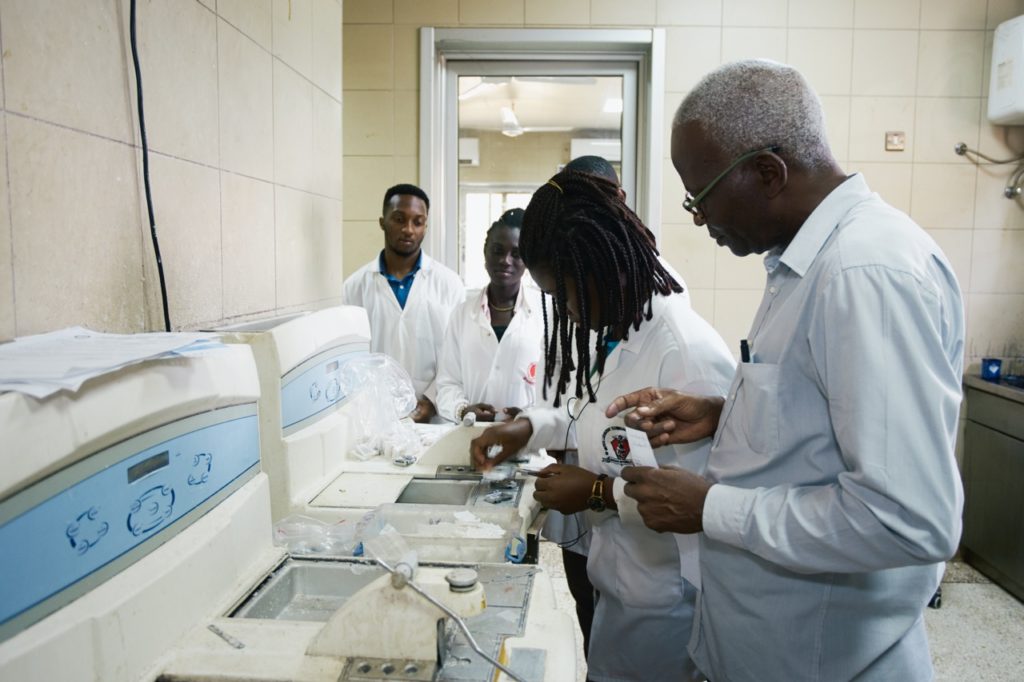
Strengthening of Cancer Registry
Extending and streamlining Kumasi’s cancer registry

A number of challenges across the cancer care spectrum were identified in the Kumasi situation analysis, including deficiencies in the field of pathology and laboratory medicine. The limitations ranged from a lack of standardised operating procedures within and across laboratories and a lack of pathology reporting standards, to the absence of traceability materials for laboratories and limited qualified human resources and infrastructure.
To aid an overall improvement and harmonisation of quality indicators of pathology diagnosis within Kumasi, which will likely translate into faster and more accurate diagnosis, greater use of pathology information for prognosis, treatment planning and disease surveillance, and effective allocation of scarce resources to cancer care services. The project will also enable the alignment of public and private stakeholders under one common development plan for pathology, with short, medium and long-term upgrading strategies for the city. This will in turn result in a guide to strategic investment and optimisation of current and future capacity.
A local multidisciplinary, inter-institutional team was assembled to coordinate the development of the different project outputs, in consultation with local and external experts nominated by the technical cooperation partners of City Cancer Challenge (C/Can). The selected project team members conducted scientific visits to Pathologists Lancet Kenya in Nairobi, which was nominated by C/Can as a partner institution of the American Society of Clinical Pathology. The final outputs will be endorsed by the City Executive Committee and the relevant authorities for implementation.
Ten healthcare professionals from four institutions have been trained and a standardised reporting format and software system for pathology has been adopted by key institutions in the city.
This website uses its own and third-party cookies to improve the browsing experience. Read the Cookies Policy.